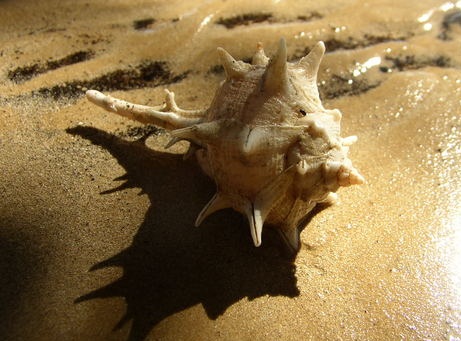Team:PrepaTec GarzaSadaMx/Human Practices: Environmental impact
From 2012hs.igem.org
(→Human Practices: Environmental impact) |
(→Human Practices: Environmental and economic impact) |
||
| (12 intermediate revisions not shown) | |||
| Line 5: | Line 5: | ||
<div style="background-color:#1b2c8a"> | <div style="background-color:#1b2c8a"> | ||
| - | === <FONT COLOR="#ffffff"> Human Practices: Environmental impact </FONT COLOR>=== | + | === <FONT COLOR="#ffffff"> Human Practices: Environmental and economic impact </FONT COLOR>=== |
<FONT COLOR="#ffffff"> | <FONT COLOR="#ffffff"> | ||
| + | {|align="center" style="background-color:#1b2c8a" | ||
| + | |align="center"|[[File:Bolinus_brandaris_5.jpg]] | ||
| + | |- | ||
| + | |} | ||
| - | |||
| - | + | Tyrian purple is the world’s most expensive pigment, costing up to about $3,500 U.S. dollars per gram. It is obtained from a specific mollusk, the Bolinus brandaris, but due to its small size, the Byzantine Empire -which controlled the production of this coveted dye-, needed to kill a large number of sea snails to obtain relatively small amounts of dye. After the obtention of the dye, the mollusks were left for decomposition. With this new technique, using recombinant DNA, it is possible to obtain the real tyrian purple, as explain in the protocols. Also, the enviroment would not suffer a dramatic loss of mollusks, preventing a disruption on the ecosystem. Besides the environment impact, it would be helpful for the economy. As stated early, to make only one gram of the dye could go up to $3,500 U.S. dollars, 3 times the cost of the process if it's done with transformed E.Coli | |
</FONT COLOR> | </FONT COLOR> | ||
Latest revision as of 03:26, 17 June 2012
Human Practices: Environmental and economic impact

|
Tyrian purple is the world’s most expensive pigment, costing up to about $3,500 U.S. dollars per gram. It is obtained from a specific mollusk, the Bolinus brandaris, but due to its small size, the Byzantine Empire -which controlled the production of this coveted dye-, needed to kill a large number of sea snails to obtain relatively small amounts of dye. After the obtention of the dye, the mollusks were left for decomposition. With this new technique, using recombinant DNA, it is possible to obtain the real tyrian purple, as explain in the protocols. Also, the enviroment would not suffer a dramatic loss of mollusks, preventing a disruption on the ecosystem. Besides the environment impact, it would be helpful for the economy. As stated early, to make only one gram of the dye could go up to $3,500 U.S. dollars, 3 times the cost of the process if it's done with transformed E.Coli
 "
"